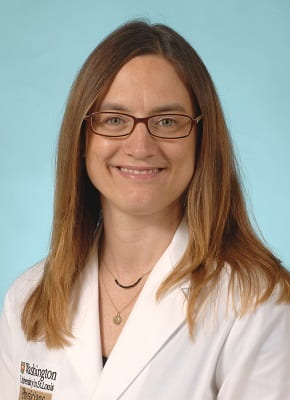
Appointments
- Associate Professor of Medicine, Cardiovascular Division
Research Interests
Programming and Reprogramming Cardiac Conduction
The main focus of the Rentschler lab is to understand the transcriptional and epigenetic regulation of cardiac electrophysiology in both murine and human model systems. Our group previously demonstrated that reactivation of developmental signaling pathways including Notch and Wnt can electrically remodel cardiomyocytes, or “reprogram” them, to adopt a new electrical phenotype in animal models (Rentschler et al, Journal of Clinical Investigation, 2011; Rentschler et al, Circulation, 2012; Gillers et al, Circulation Research 2015). In heart failure, reactivation of the Notch signaling pathway may contribute to transcriptional changes influencing ion channel gene expression that may predispose to the development of lethal arrhythmias (Khandekar et al, Circulation Research 2016). In contrast, reactivation of distinct signaling networks within adult myocardium may provide new avenues for regenerative medicine approaches for the treatment of arrhythmias, such as in the development of a biological pacemaker (Meyers et al, Trends in Cardiovascular Medicine, 2015).
Together with our collaborators, we have developed methodology for culturing organotypic cardiac slices from atria and ventricles from explanted human donor hearts rejected from transplantation. Functional readouts include optical mapping with voltage-sensitive dyes to visualize and quantify electrophysiological properties, as well microelectrode recordings to assess changes in cellular physiology. In addition, we are performing genome-wide gene expression and epigenetic studies on mouse and human cardiac tissue to decipher the complex regulatory mechanisms that govern expression of important regulators of electrophysiology within regions of the heart in both health and disease states. This methodology will allow us to test the response of human cardiac tissue to selected therapeutics, with the goal of expediting the prolonged process involved in getting new therapeutics validated for use in humans.
Publications
View Stacey L. Rentschler’s publications on PubMed.gov »
Contact
Phone: 314-362-6212 (Office) | 314-362-6214 (Lab)
Fax: 314-362-7058
Email: stacey.rentschler@wustl.edu
Visit the Rentschler Lab website.
View Dr. Rentschler’s profile on the Cardiovascular Division site »